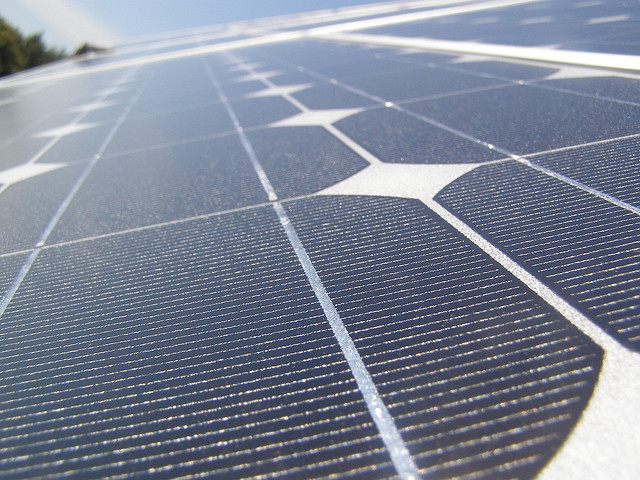The tragedy of Gaza has largely faded from the spotlight even as the humanitarian crisis in the Palestinian territory of 1.8 million continues to worsen following last summer’s military assault by Israel.
“Blockades, war and poor governance have strangled Gaza’s economy and the unemployment is now the highest in the world,” reports the latest World Bank May 2015 study.
Power outages lasting more than 16 hours a day continue to ravage Gaza and make sick patients in hospitals especially vulnerable as insufficient power often decides between life or death.
EmpowerGAZA is an organization that wants to provide reliable power to hospitals. The organization was started by three Canadian physicians: Dr. Benjamin Thomson, Dr. Tarek Loubani and Dr. Dalal Dahrouj, along with filmmaker Amy Miller. It is seeking to raise a total of $1.2 million USD over the next year and a half to help pay for the installation of environmentally friendly, uninterrupted and sustainable solar panels for four of the five largest hospitals: Al Aqsa, Kamal Adwan, European and Rantisi Pediatric Hospital.
The focus is on the critical areas of emergency, intensive care and surgical operations.
Medical care in Gaza has been front and centre in the treatment of the thousands of local residents injured last year during the Israeli military assault. Furthermore, hospital facilities and clinics were bombed and at least one facility, the el-Wafa Rehabilitation Hospital, was completely destroyed.
Ongoing inadequate resources in Gaza’s medical infrastructure make it difficult for Gazans to receive all of the care they need, says Thomson, a London, Ontario-based kidney specialist.
“The needs are vast, there is a significant divide between what the patients are suffering from and what is available for them from an infrastructure perspective,” he said.
Late last year Canada turned down a request by a University of Toronto professor and former Gaza resident Dr. Izzeldin Abuelaish to provide the necessary visas that would have allowed 100 seriously injured Gaza children to enter Canada to receive the kind of reconstructive surgery not readily available in the Palestinian territory.
EmpowerGAZA is strictly non-partisan and Thompson, its spokesperson, prefers to focus on the immediate challenges facing health-care workers in Gaza.
Looming as the most dangerous are the electricity power outages, which can last up to 16 hours on a daily basis across Gaza, said Thomson. One doctor he knows operating in Gaza has needed to rely on the light shining from a mobile phone to examine a patient.
“The management of a patient and the outcomes of the patient were dramatically impacted by the lack of energy. Whether it was a dialysis machine that stopped working and the patient dying because they didn’t have dialysis or whether it was the lights going out in the operating room, the surgeon not being able to see and the patient dying because of the result of that,” said Thomson.
Gaza does have a local power station, which was bombed in last summer. The majority of its electricity comes in a limited “rationed” form from either Israel or Egypt, Thomson explained.
In terms of medical care, power outages, even of a short duration, can result in the deaths of patients. Health-care workers need available electrical power on a 24-hour, 365-days-a-year basis, he said.
But that is not always possible in Gaza and so the hospitals take on expensive, polluting diesel generators for backup in the event of an outage, and those machines often fail.
“When the energy grid fails and the backup generators fail you are really dealing with a catastrophe,” said Thomson.
EmpowerGAZA is proposing an alternative: a clean and efficient energy source like solar that allows hospitals in the Palestinian territory to be self-sufficient without relying on outside sources. Similar projects have been successfully introduced in other countries including Haiti, India, Lebanon and Nepal.
Thomson reported that solar panels are already installed in two initial projects in Gaza hospitals.
“We know that [solar] is effective. We know where [in Gaza] we need it and how to do it. The expertise is there; we just need the money to make it happen [across Gaza’s entire medical infrastructure],” he said.
The current fundraising campaign began in May and already a little over $100,000 USD has been raised from about 600 individual donors.
Thomson explains that it will cost about $200,000 to have at least three hospitals in Gaza set up to run on solar power. A remaining larger medical facility, the European Hospital, will require a larger investment of $600,000 for its solar installation.
Thomson said the campaign is focused on the generosity of individual donors all over the world.
“We are trying to avoid partnerships with governments and the reason for that is the amount of dollars committed by [nations] after last summer’s attack [on Gaza by Israel] was not fulfilled,” he explained.
However, the London physician is confident that EmpowerGAZA, working in conjunction with the United Nations Development Program and Islamic Relief Canada, will succeed in its fundraising goal.
“People recognize that this is a project that will save lives and provide long sustainable benefits to the people of Gaza. The UN will train people in Gaza on the maintenance and upkeep of the solar equipment.”
For more information there is the Empower Gaza website.
Paul Weinberg is a Hamilton based freelance writer who can be reached at [email protected].
Photo: flickr/ (ノ◕ヮ◕)ノ*:・゚✧




